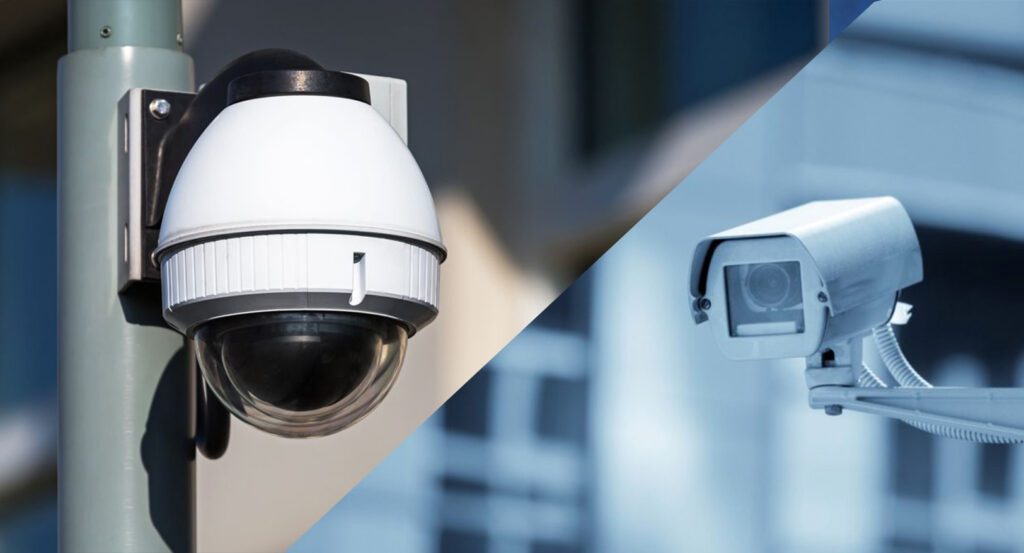
Since cameras have emerged, IP cameras are the latest technological advancement. Basically, there are a couple of video surveillance systems. CCTV vs. IP camera indicates that the former is closed-circuit television, while IP cameras are referred to as network cameras. CCTV systems transform the visual signals into a format that televisions, DVRs, and VCRs can understand. IP cameras transform the visual signal into IP packets for data network transmission. This works out to be the major difference between a CCTV vs IP camera.
CCTV vs. IP cameras
When you compare CCTV vs. IP cameras, both have their pros and cons. CCTV cameras have a low preliminary price point in comparison to an IP system. However, this is quickly altering as the cost of IP cameras and storage devices has decreased.
The factor that has reduced the cost of an IP system is the cabling cost. CCTV opts for a power cable, while an IP camera uses a standard network.
Capabilities
The advantage of an IP camera is that its capabilities surpass those of an analogue system. IP cameras have a higher resolution in comparison to a CCTV camera. Compared to analogue cameras, the increased resolution yields a significantly wider field of view.. By using IP cameras, you reduce the number of cameras needed to cover a specific viewing area and hence reduce the total cost of ownership.
Digital zoom
In the comparison of CCTV vs. security cameras, digital zoom is a benefit of IP cameras. The feature of digital zoom allows users to digitally zoom in on both live and recorded videos to view the image in more detail. The more pixels you have in an image, the more you can zoom in on it before it breaks up. This is especially useful when you are trying to read a licence plate or recognise a person.
Expansion
Due to the limitations of DVRs in a CCTV system, expansion of a CCTV system can turn out to be costly. Most DVRs are restricted to 4, 8, 16, or 32 cameras, and expanding beyond that means more purchasing power. With an IP camera, you can add more storage space to the original purchase. This means you can expand the system without making any major purchases. The cost of hard drives has increased in the last few years, making storage a minimal cost while reviewing the cost of the entire system.
Additional features
IP cameras have onboard processors that give them more capabilities than an analogue camera. Features like cross-line detection, motion detection, a wide dynamic range, and improved light functionality allow the camera to make necessary adjustments. It triggers events within the camera itself, allowing the video server to function effectively and improving overall performance.
In the decision of CCTC vs. security camera, it is important to understand the objectives of a video surveillance system. How the system will be used is very important when it comes to choosing systems such as
- The choice of the correct cameras
- Storage Needs
- Software
- Camera location
Errors in any of the systems can provide you with a system that does not meet the objectives.
The advantages of IP cameras outweigh the advantages of CCTV cameras
In the comparison of CCTV vs. IP cameras, interesting trends emerge. IP video surveillance is quickly becoming the standard for video surveillance. With scalability, additional features, and a declining cost of ownership, CCTV vs. IP is not a difficult decision to make.
A professional company takes time to talk to the customer and determine their needs. Based on that, they designed the system. These companies are of considerable help in making the perfect choice when it comes to CCTV vs. IP cameras.